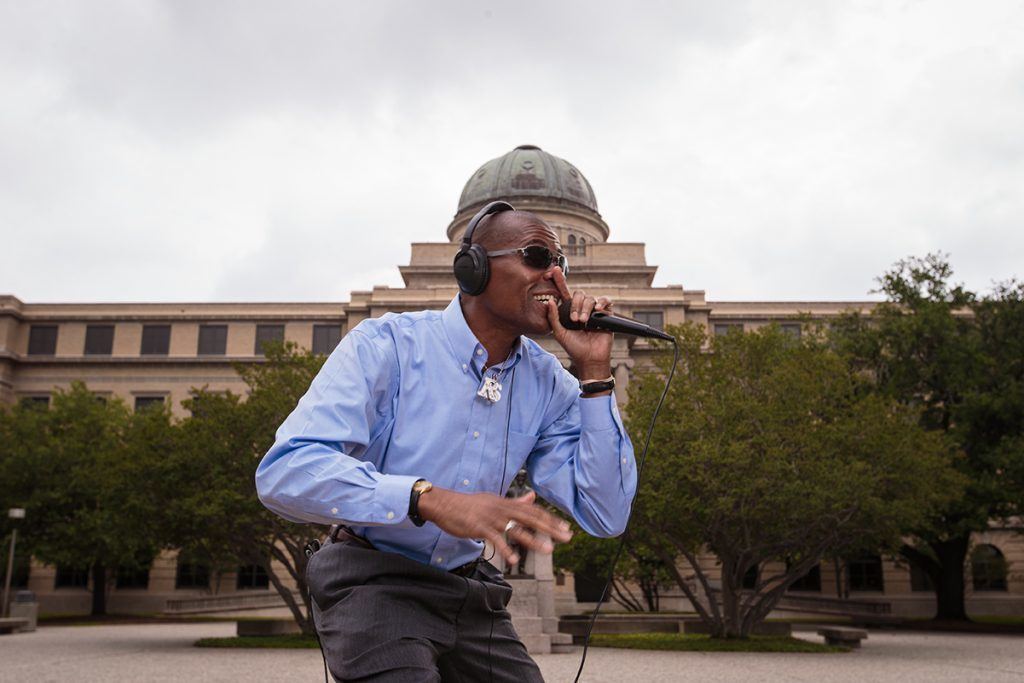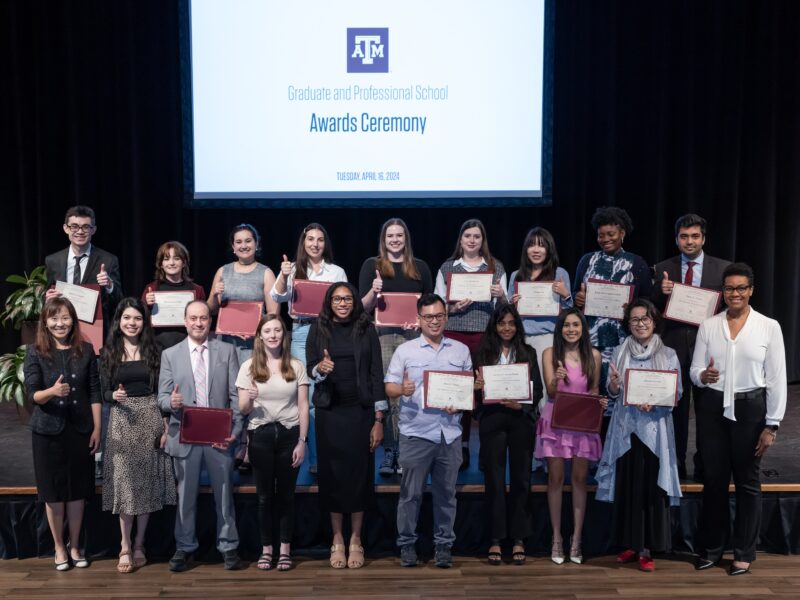By day, he’s Reuben May, the Glasscock University Professor in Undergraduate Teaching Excellence and Presidential Professor of sociology. In his free time, however, he’s Reginald S. Stuckey, rapper and poet. And while he raps everywhere he goes—from Kyle Field to the streets of New Orleans to the House of Blues in Chicago—some of the most influential performances are done by his students in his classroom.
“One random day, I’ll go into class and tell students to take out a sheet of paper. I’ll have them listen to a beat, and then write four to eight lines of content based on their reading assignment. Then they perform it,” he said. “It breaks down barriers and creates a vulnerable environment where people can talk about difficult and critical matters.”
Using rap as a conduit for discussing controversial issues is nothing new. And while rap styles have changed in the last 30 years, May still finds it as relevant as ever.
“Some things were addressed in rap in the late 1980s that have resurfaced again, especially with issues regarding race. Rap artists continue to illuminate these problems,” he said.
In honor of #BlackPoetryDay, check out @TAMU sociology professor Reuben May, aka @ReginaldStuckey #rappingprofessorhttps://t.co/3dvKKUSrZf pic.twitter.com/GcQsw3Gja2
— Liberal Arts at TAMU (@TAMUliberalarts) October 17, 2017
May began rapping with his friends while attending high school in Chicago in the late 1980s, and began recording original music in college. While at first his lyrics represented less taxing issues—basketball and girls—he later used the art form to channel his feelings on deeper social and personal issues.
“I first had the opportunity to write something profound in 1988,” he said. “There was an African-American man who was beaten up by police, and I participated in a rally to protest police brutality. It inspired me to write a song called ‘Take a Stand, Black Man’ that was about addressing injustices through activism. It was a significant time for me.”
Today, May continues to rap about complex issues, often using coded language to keep students from knowing his political positions so they can make up their own minds. And he doesn’t plan on stopping anytime soon.
“Rap is poetry, in that it uses symbolism to convey certain emotions, and in the creative linkage of words,” May said. “There’s power in that expression.”
###
This story by Heather Rodriguez originally appeared on the College of Liberal Arts website.






